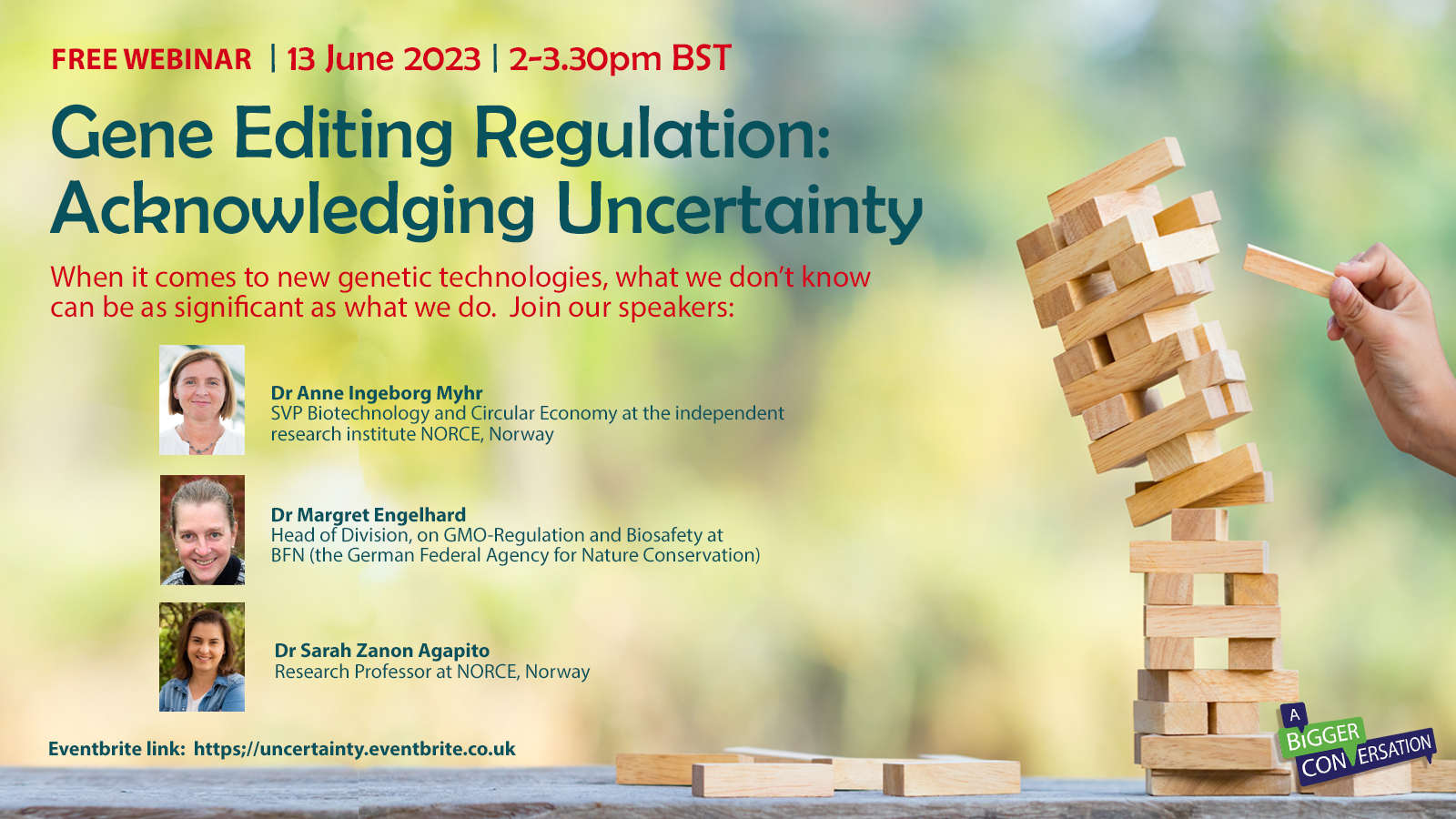As the UK and EU consider deregulation of gene edited organisms in food and farming, a persistent criticism has been government and policymakers’ failure to acknowledge or take account of uncertainties inherent in deregulation, and the role that uncertainty plays in determining risk, safety, sustainability and appropriateness.
This failure is, in part, a result of decision-makers’ reliance on a very narrow range of specialist scientific advisors – the very opposite of what is needed in a post-normal science era, where the stakes are high and science is less able to bring certainty to complex issues, and where greater uncertainty demands consideration of the wider landscape and of views and inputs from a more diverse pool of expertise.
Join us as we as we explore some of the facets of uncertainty which sit at the intersection of genetic technologies and the agricultural and natural environment relevant to a ‘fit for purpose’ regulatory discourse.
Speakers
Dr Anne Ingeborg Myhr, Senior Vice President, Biotechnology and Circular Economy at the independent research institute NORCE, who will be speaking on a post-normal science approach to the regulation of genome edited crops and foods. Presentation can be downloaded here.
Dr Margret Engelhard, Head of Division on GMO-Regulation and Biosafety at BfN (the German Federal Agency for Nature Conservation), to talk about the intended use of gene editing and gene drives in wild nature and how this increases uncertainty and therefore the need for wider input into regulation.
Dr Sarah Agapito Tenfen, Research Professor at NORCE in Norway, to talk about the challenges and uncertainties in detection of new GMOs and the need for a multifaceted approach to this. Presentation can be downloaded here.
Chair
Lawrence Woodward Director A Bigger Conversation/Beyond GM. Co-founder and former Director of the Organic Research Centre – Elm Farm, Lawrence acts as an advisor for several projects related to seed production, organic farming techniques and health.

